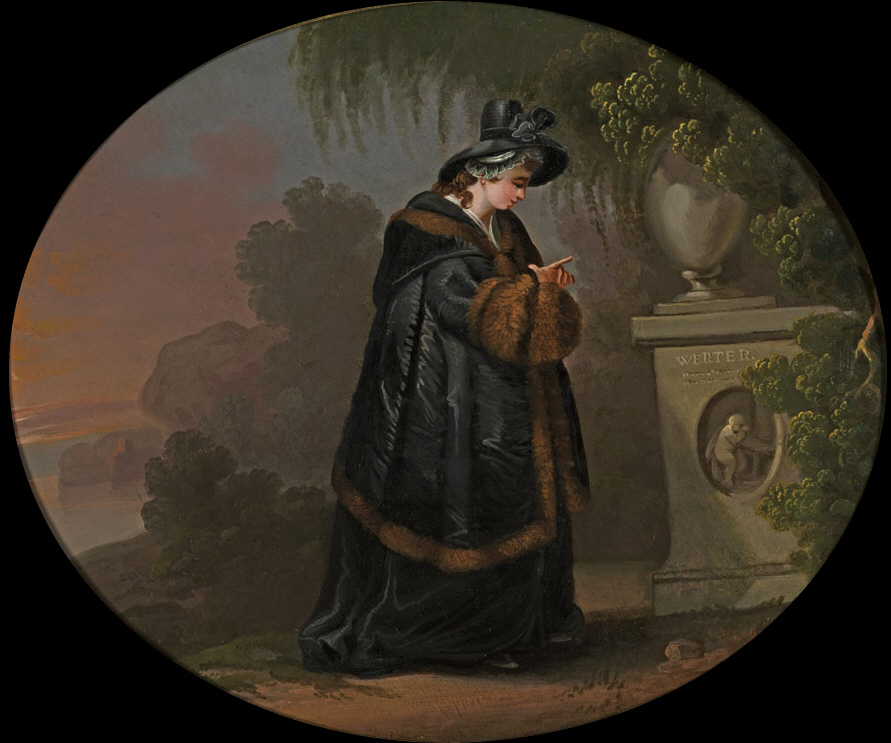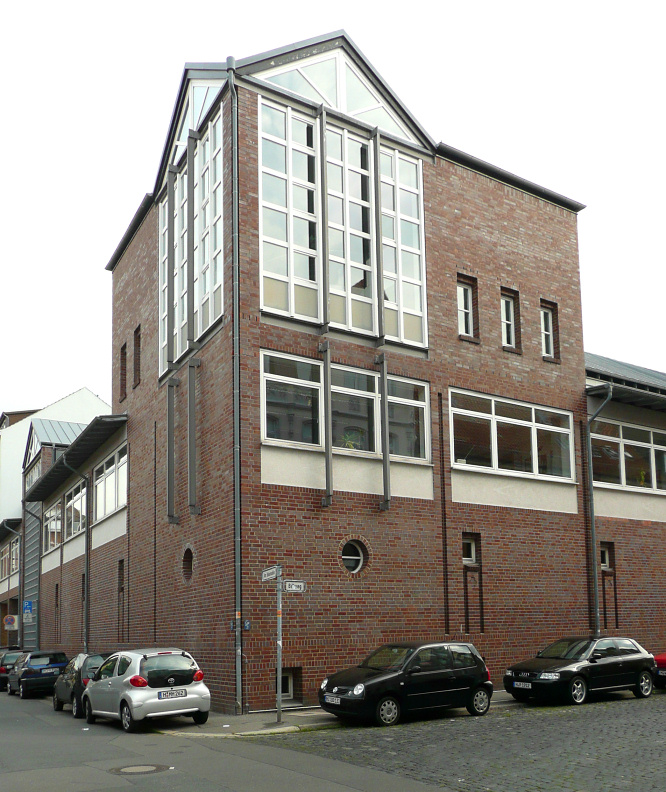|
Johann Christian Kestner
Johann Georg Christian Kestner (28 August 174124 May 1800) was a German lawyer and archivist. He is also notable as the model for Lotte's husband Albert in ''The Sorrows of Young Werther'' by Goethe, with Kestner's fiancée Charlotte Buff used as the model for Lotte herself. Life In the 18th and 19th centuries the Kestner family was one of the families at court (). As a young Brunswick-Lüneburg legation secretary in the imperial chamber court () in Wetzlar from 1767 to 1773, he met and became engaged to Charlotte Buff, a daughter of the bailiff of the local . Goethe also worked at the same court during 1772 and got to know both Kestner and Buff. Goethe fell in love with Buff, nicknaming her "Lotte", even though she was already engaged. This love and Karl Wilhelm Jerusalem's suicide using Kestner's borrowed pistols were both used by Goethe in ''The Sorrows of Young Werther'', which first appeared in 1774. Buff and Kestner married in 1773 in Wetzlar and then moved to Hanove ... [...More Info...] [...Related Items...] OR: [Wikipedia] [Google] [Baidu] |
The Sorrows Of Young Werther
''The Sorrows of Young Werther'' (; ), or simply ''Werther'', is a 1774 epistolary novel by Johann Wolfgang von Goethe, Johann Wolfgang Goethe, which appeared as a revised edition in 1787. It was one of the main novels in the ''Sturm und Drang'' period in German literature, and influenced the later Romanticism, Romantic movement. Goethe, aged 24 at the time, finished ''Werther'' in five and a half weeks of intensive writing in January to March 1774. It instantly placed him among the foremost international literary celebrities and was among the best known of his works. The novel was inspired by Goethe's personal life, and involving love triangle, triangular relationships of real people. One triangular relationship involved Goethe, Christian Kestner, and Charlotte Buff (who married Kestner); and the other involved Goethe, Peter Anton Brentano, Maximiliane Brentano, Maximiliane von La Roche (who married Brentano), and Karl Wilhelm Jerusalem. Jerusalem died by suicide on the night of ... [...More Info...] [...Related Items...] OR: [Wikipedia] [Google] [Baidu] |
Stadtarchiv Hannover
The Stadtarchiv Hannover is the municipal archive of the German city of Hannover, the capital of Lower Saxony. Originating before 1300 and still with strong medieval holdings, it holds the collected documents produced by the mayor, the city council and administration. Its earliest surviving document dates to 1241, and the only pre-modern gap in its records results from the Knochenhauer-Amtshaus-fire of 1428. The catalogue was stored offsite during World War II and survived, although building registry documents were destroyed by Bombing of Hanover in World War II, bombing in 1943. A flash flood in 1946 also destroyed 19th-century documents. External links Stadtarchiv Hannover Hanover {{Authority control category:City archives, Hannover category:History of Hanover (city) category:History of Hanover (region) category:Buildings and structures in Hanover ... [...More Info...] [...Related Items...] OR: [Wikipedia] [Google] [Baidu] |
1800 Deaths
As of March 1 ( O.S. February 18), when the Julian calendar acknowledged a leap day and the Gregorian calendar did not, the Julian calendar fell one day further behind, bringing the difference to 12 days until February 28 ( O.S. February 16), 1900. Events January–March * January 1 ** Quasi-War: Action of 1 January 1800 – A naval battle off the coast of Haiti, between four United States merchant vessels escorted by naval schooner , and a squadron of armed barges manned by Haitian pirates (known as picaroons), under the command of general André Rigaud, ends indecisively. ** The Dutch East India Company dissolves. * February 7 – A public plebiscite in France confirms Napoleon as First Consul, by a substantial majority. * February 11 – Infrared radiation is discovered by astronomer Sir William Herschel. * February 22 – The Baker rifle, designed by Ezekiel Baker, is selected by the British Board of Ordnance as a new standard. * March 14 &nd ... [...More Info...] [...Related Items...] OR: [Wikipedia] [Google] [Baidu] |
1741 Births
Events January–March * January 13 **Lanesborough, Massachusetts is created as a township. **Conventicle Act (Denmark–Norway), Conventicle Act of 1741 is introduced in Denmark-Norway. *February 13 – Sir Robert Walpole, the Prime Minister of Great Britain, popularizes the term "the balance of power (international relations), balance of power" in a speech in Parliament. *February 14 – Irish-born actor Charles Macklin makes his London stage debut as Shylock in ''The Merchant of Venice'' at the Theatre Royal, Drury Lane, pioneering a psychologically realistic style with Shakespeare's text revived, replacing George Granville, 1st Baron Lansdowne, George Granville's melodramatic adaptation The Merchant of Venice#Performance history, ''The Jew of Venice''. Kitty Clive plays the Travesti (theatre), travesti role of Portia (The Merchant of Venice), Portia. *March 9 – War of the Austrian Succession: Prussian troops bring down the Austrian fortress of Głog� ... [...More Info...] [...Related Items...] OR: [Wikipedia] [Google] [Baidu] |
Hugo Thielen
Hugo Thielen (born 1946) is a German freelance author and editor, who is focused on the history of Hanover, the capital of Lower Saxony, in a lexicon of the city, another one especially of its art and culture, and a third of biographies. He co-authored a book about Jewish personalities in Hanover's history. Life Thielen studied German language and literature, philosophy and education at the University of Bonn from 1966, completing with the Staatsexamen in 1971. He has lived in Hanover from 1973, working as editor and author for various publishing houses. He worked for a publisher mainly of school readers, until 1981, for the Th. Schäfer Verlag until 1995, also for the Postskriptum Verlag, for Hirschgraben, a publisher of school readers in Frankfurt am Main, for in Lüneburg and Springe, and for From 1983 to 1995 he was a freelance music critic for the '' Hannoversche Allgemeine Zeitung''. He is head of a Verlagsbüro, an office for freelance writers. Publications Thielen ... [...More Info...] [...Related Items...] OR: [Wikipedia] [Google] [Baidu] |
Siegfried Rösch
Siegfried is a German-language male given name, composed from the Germanic elements ''sig'' "victory" and ''frithu'' "protection, peace". The German name has the Old Norse cognate ''Sigfriðr, Sigfrøðr'', which gives rise to Swedish ''Sigfrid'' (hypocorisms ''Sigge, Siffer''), Danish/Norwegian ''Sigfred''. In Norway, ''Sigfrid'' is given as a feminine name. official statistics at Statistisk Sentralbyrå, National statistics office of Norway, https://www.ssb.no; Statistiska Centralbyrån, National statistics office of Sweden, https://www.scb.se/ The name is medieval and was borne by the legendary dragon-slayer also known as . It did survive in marginal use into the modern period, but after 1876 it enjoyed renewed popular ... [...More Info...] [...Related Items...] OR: [Wikipedia] [Google] [Baidu] |
Anna Wendland
Anna may refer to: People Surname and given name * Anna (name) Mononym * Anna the Prophetess, in the Gospel of Luke * Anna of East Anglia, King (died c.654) * Anna (wife of Artabasdos) (fl. 715–773) * Anna (daughter of Boris I) (9th–10th century) * Anna (Anisia) (fl. 1218 to 1221) * Anna of Poland, Countess of Celje (1366–1425) * Anna of Cilli (1386–1416) * Anna, Grand Duchess of Lithuania (died 1418) * Anne of Austria, Landgravine of Thuringia (1432–1462) * Anna of Nassau-Dillenburg (died 1514) * Anna, Duchess of Prussia (1576–1625) * Anna of Russia (1693–1740) * Anna, Lady Miller (1741–1781) * Anna Russell, Duchess of Bedford (1783–1857) * Anna, Lady Barlow (1873–1965) * Anna (feral child) (1932–1942) * Anna (rapper) (born 2003) * Anna (singer) (born 1987) * C. N. Annadurai (1909–1969), Indian politician, known as Anna (elder brother) * Sunil Shetty (born 1961), Indian actor, known by his nickname Anna Places Australia * Hundred of Ann ... [...More Info...] [...Related Items...] OR: [Wikipedia] [Google] [Baidu] |
August Kestner
Georg Christian August Kestner (28 November 1777, in Hanover – 5 March 1853, in Rome) was a German diplomat and art collector. Life Kestner was the son of civil servant Johann Christian Kestner and his wife Charlotte Buff. From 1796 to 1799 Kestner studied law at the University of Göttingen and was immediately afterwards called up as a ''Vernehmungsrichter'' (interrogation judge) at the court in Hanover. In 1803 Kestner was appointed 'secret office-secretary in the civil service'. As such, he made his living from 1818 to 1849, among other things, as an official envoy and Minister-resident in Rome and Naples. Also he was a diplomat of Hanover to the Holy See in Rome. As an art lover, he gathered small objects from Egyptian as well as Greco-Roman art. He, Theodor Panofka and Otto Magnus von Stackelberg founded the "Instituto di Corrispondenza Archeologica" in 1829, later to become the German Archaeological Institute The German Archaeological Institute (, ''DAI'') is ... [...More Info...] [...Related Items...] OR: [Wikipedia] [Google] [Baidu] |
Johann Wolfgang Von Goethe
Johann Wolfgang (von) Goethe (28 August 1749 – 22 March 1832) was a German polymath who is widely regarded as the most influential writer in the German language. His work has had a wide-ranging influence on Western literature, literary, Political philosophy#European Enlightenment, political, and Western philosophy, philosophical thought in the Western world from the late 18th century to the present.. A poet, playwright, novelist, scientist, statesman, theatre-director, and critic, Johann Wolfgang von Goethe bibliography, his works include plays, poetry and aesthetic criticism, as well as treatises on botany, anatomy, and colour. Goethe took up residence in Weimar in 1775 following the success of his first novel, ''The Sorrows of Young Werther'' (1774), and joined a thriving intellectual and cultural environment under the patronage of Duchess Anna Amalia of Brunswick-Wolfenbüttel, Duchess Anna Amalia that formed the basis of Weimar Classicism. He was ennobled by Karl August, G ... [...More Info...] [...Related Items...] OR: [Wikipedia] [Google] [Baidu] |




